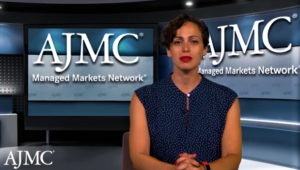- This Week in Managed Care: September 7, 2018 (ajmc.com)
Laura Joszt, Managing Editor at The American Journal of Managed Care. Welcome to This Week in Managed Care from the Managed Markets News Network
- Financial disclosure lacking in publication of clinical trials, new research shows (healthcarefinancenews.com)
It's the first study to examine financial conflict of interest in publication of clinical trials that underpin FDA approval of new oncology drugs...A substantial proportion of pharmaceutical industry payments to authors of oncology clinical trials published in major scientific journals are not disclosed, new research shows. The publications focused on clinical trials that tested new cancer drugs...Authors of the research letter examined the federal Open Payments Database to determine payments to oncologists who authored studies in high-impact journals...They then cross-checked the information to determine whether the authors properly disclosed the funding when the results of their clinical trials were published in scientific journals. Depending on the journal, almost half of total funding was not disclosed...
- This Week in Managed Care: August 31, 2018 (ajmc.com)
Laura Joszt, Managing Editor at The American Journal of Managed Care. Welcome to This Week in Managed Care from the Managed Markets News Network
- August 24 Pharmacy Week in Review: Contact Lens Hygiene, New Treatment for OCD (pharmacytimes.com)
Nicole Grassano, PTNN, Pharmacy Week in Review, this weekly video program provides our readers with an in-depth review of the latest news, product approvals, FDA rulings and more.
- September 7 Pharmacy Week in Review: Role of Pharmacy Technicians in Iowa Expands, Immunotherapy Shrinks Melanoma Metastases (pharmacytimes.com)
Nicole Grassano, PTNN, Pharmacy Week in Review, this weekly video program provides our readers with an in-depth review of the latest news, product approvals, FDA rulings and more.
- How IBM and the CDC are testing blockchain to track health issues like the opioid crisis (fastcompany.com)HIT Think How blockchain could solve 4 major problems in healthcare (healthdatamanagement.com)
IBM and CDC experts are hopeful that using a blockchain could help streamline long-running surveys that track patient symptoms and treatments...The Centers for Disease Control and IBM are collaborating on a blockchain-based system that could track public health issues like the ongoing opioid crisis...The new system, which IBM and the CDC’s National Center for Health Statistics have tested using simulated data, could make it easier for the CDC to survey medical providers about data like the reasons patients visit and the symptoms they display...Using the blockchain approach could make it easier to automatically collect the data, keep it secure, and log who’s accessed which parts of it...“There’s a lot of transparency that blockchain seems to offer to us,”...Blockchains are perhaps still most commonly associated with cryptocurrencies, where the secure digital ledgers are used to track who owns each unit of currency, with copies of the ever-growing chain of records automatically duplicated to anyone who wants them. But companies like IBM and Microsoft are exploring how the technology can be used in more traditional industries to sync up data like logs and transaction records between business associates, like health providers and the CDC. The automatic data replication can help maintain a reliable audit trail for more than just digital currency, they say...
- August 31 Pharmacy Week in Review: Digital Health Market Growing Rapidly, Testing For Gene Mutation Linked to Cancer is Underused (pharmacytimes.com)
Nicole Grassano, PTNN, Pharmacy Week in Review, this weekly video program provides our readers with an in-depth review of the latest news, product approvals, FDA rulings and more.
- About 1 in 5 hospitals mark up drug prices at least 700 percent, study finds (healthcarefinancenews.com)
Nearly one in five hospitals mark up medicine prices 700 percent or more, according to a new analysis from The Moran Company, prepared for The Pharmaceutical Research and Manufacturers of America...This means that if a hospital purchased a medicine for $150, a 700 percent markup could result in patients being billed $1,050, according to the study. And the analysis also found that 320 hospitals – eight percent of those included in the study – marked up some medicine prices more than 1,000 percent...The analysis used Centers for Medicare and Medicaid Services data that included total costs and charges for all medicines from 3,792 hospitals. On average, those hospitals marked up the price of medicines nearly 500 percent, consistent with an analysis of 20 medicines previously conducted by Moran...Markups on medicine prices often lead to higher reimbursement by health plans. More than half of commercial payers reimburse hospital outpatient departments as a percent of billed charges. Hospitals have incentives to increase markups as higher charges are associated with greater profitability...
- Gottlieb Spells out Vision for FDA Modernization Efforts to Create a new Data Enterprise (raps.org)
As the US Food and Drug Administration continues to navigate a bumpy road toward modernization, a new data enterprise will aim to enhance regulatory decisions on products...The growing number of novel medical products in the US prompted FDA to “refashion” the approaches to drug and device regulations and “create more modern platforms that are better suited to the efficient evaluation of these advances,” said FDA Commissioner Scott Gottlieb...The initiatives already underway...will help “fund the creation of a cross-cutting data enterprise for the generation of evidence, and a more modern and integrated approach to the evaluation of this information,”...Modernization is intended to make regulatory premarket reviews more consistent and predictable to ultimately increase competition among firms and allow for more timely patient access to a greater number of drugs and devices in the US market that are more affordable and of higher quality. This culture shift could also lead to reduced burden and potential cost savings...
- This Week in Managed Care: August 24, 2018 (ajmc.com)










